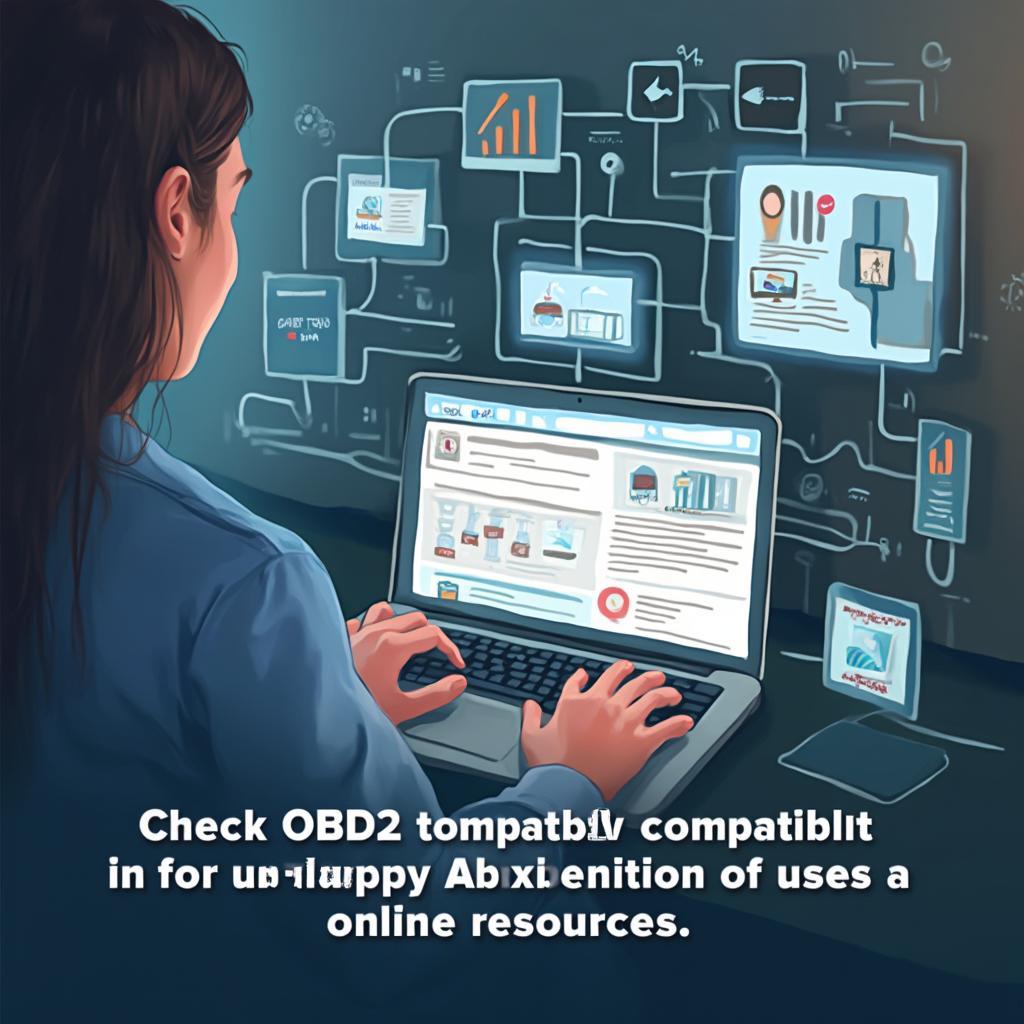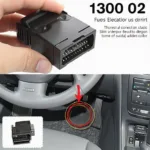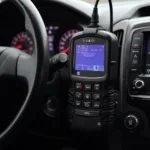If your car is not ISO OBD2 compatible, you might be wondering what that means and what your options are. This article aims to demystify OBD2 compatibility issues, exploring common reasons, solutions, and providing valuable insights for vehicle owners and automotive professionals alike. We’ll cover various scenarios, from older vehicles to specific models known for compatibility challenges.
Understanding OBD2 and ISO Standards
OBD2, short for On-Board Diagnostics, is a standardized system that allows external devices, such as scanners, to access a vehicle’s diagnostic information. The ISO (International Organization for Standardization) sets standards to ensure consistency and interoperability across different vehicle makes and models. However, not all vehicles adhere strictly to these standards, especially older models or those manufactured for specific markets. This can lead to compatibility problems when trying to use standard OBD2 scanners.
One common misconception is that all cars manufactured after a certain year are automatically OBD2 compliant. While regulations pushed for wider adoption of OBD2, there are exceptions and variations. For example, some manufacturers implemented pre-OBD2 systems or modified versions, leading to the “car is not ISO OBD2 compatible” issue.
After the introduction of OBD2 in the mid-90s, many manufacturers were still transitioning. While the connector might be physically the same, the protocols and data communicated could differ. This can make connecting a standard OBD2 scanner like the ones reviewed on sites like OBDFree a challenge. You might even experience issues with specific protocols, like those used by the Golf 4, discussed in the golf 4 obd2 protocol article on OBDFree.
Why Is My Car Not ISO OBD2 Compatible?
Pre-OBD2 Vehicles
Vehicles manufactured before OBD2 regulations were fully implemented might have proprietary diagnostic systems. These systems often require manufacturer-specific tools, making them incompatible with standard OBD2 scanners.
Regional Variations
While OBD2 aims for standardization, some regions have implemented slight variations. These variations, while minor, can sometimes cause compatibility issues with scanners designed for other regions.
Manufacturer Specific Implementations
Even within the OBD2 framework, manufacturers can implement their own proprietary extensions or modifications. These can lead to challenges when using generic OBD2 scanners. This is often the case with certain models known for requiring specialized adapters or software. For more information on specific OBD2 devices and their compatibility, you can compare different models like the Kobra OBD2 Bluetooth vs WiFi discussed in this article: kobra obd2 bluetooth vs wifi.
Aftermarket Modifications
Certain aftermarket modifications, particularly those affecting the vehicle’s engine control unit (ECU), can sometimes interfere with OBD2 communication.
What to Do if Your Car Is Not ISO OBD2 Compatible?
Identify the Protocol
Determining the specific communication protocol used by your car’s diagnostic system is crucial. This will help you find the right adapter or scanner.
Use Manufacturer Specific Tools
For older or uniquely configured vehicles, manufacturer-specific diagnostic tools are often the most reliable option.
Consider Advanced OBD2 Scanners
Some advanced OBD2 scanners support multiple protocols and can handle variations in OBD2 implementation. These scanners can be more expensive but offer greater compatibility. You might find reviews of such scanners helpful on websites like OBDFree. For instance, the Thinkcar Pro OBD2, reviewed in thinkcar pro obd2, might be a suitable option.
Consult a Professional
If you are unsure about your vehicle’s OBD2 compatibility or encounter difficulties, consulting a qualified mechanic is always recommended.
“OBD2 compatibility can be tricky, especially with older models. Identifying the correct protocol is crucial for successful diagnostics.” – John Smith, Automotive Engineer
How Can I Tell if My Car is OBD2 Compatible?
Check the OBD2 Port
The presence of a standardized OBD2 port is a good starting point but does not guarantee full compatibility.
Consult the Vehicle’s Documentation
Your vehicle’s owner’s manual or service information should provide details about the diagnostic system and its compatibility with OBD2.
Use an OBD2 Checker Tool
Several online tools and apps can help identify your car’s OBD2 protocol and compatibility based on its make, model, and year. Problems connecting with certain scanners, like the Hikren OBD2 scanner, can also be troubleshooting with online resources. Check out this article: obd2 hikren cant connect.
 Checking OBD2 Compatibility Online
Checking OBD2 Compatibility Online
Conclusion
Dealing with a car that’s not ISO OBD2 compatible can be frustrating, but with the right information and tools, you can overcome these challenges. By understanding the reasons for incompatibility and exploring available solutions, you can effectively access your vehicle’s diagnostic information and maintain its optimal performance. Remember to check resources like OBDFree for further insights into OBD2 scanners and compatibility issues.
FAQ
- What does ISO OBD2 compatibility mean?
- Why are some cars not OBD2 compliant?
- How do I find the correct OBD2 protocol for my car?
- What are my options if my car uses a pre-OBD2 system?
- Are there different types of OBD2 connectors?
- Can aftermarket modifications affect OBD2 compatibility?
- Where can I find reliable information about OBD2 scanners?
Common Situations and Questions:
-
Scenario: My scanner says “No Link” when connected to my pre-1996 car.
-
Solution: Your car likely uses a pre-OBD2 system. Consult your vehicle’s documentation or a specialist.
-
Scenario: My ELM327 scanner won’t connect to my 2000 model car.
-
Solution: Ensure your scanner supports the specific OBD2 protocol used by your car. Consider checking resources related to your scanner’s version, such as elm327 v1 5 obd2 ii.
Further Resources on OBDFree:
- Articles on specific OBD2 scanner models and their compatibility.
- Troubleshooting guides for common connection problems.
- Information on various OBD2 protocols and their applications.
Need assistance? Contact us via WhatsApp: +1(641)206-8880, Email: [email protected] or visit us at 789 Elm Street, San Francisco, CA 94102, USA. We offer 24/7 customer support.

